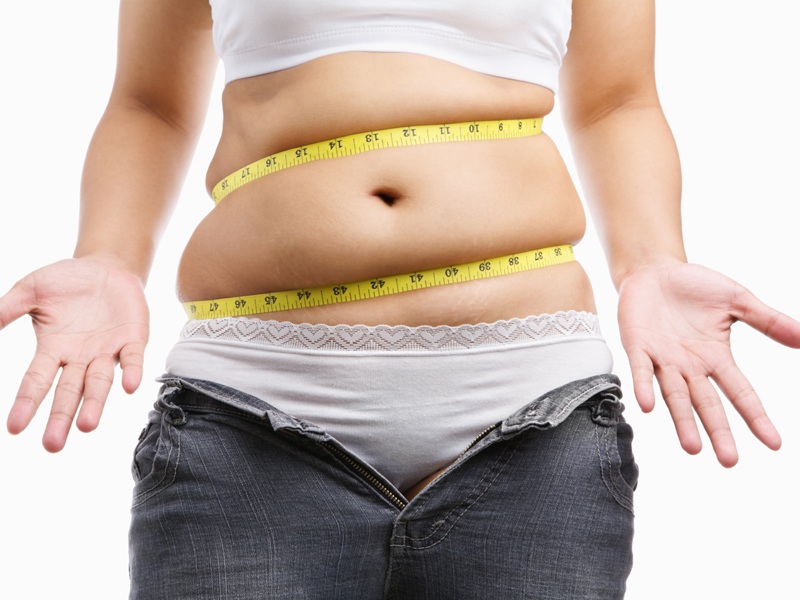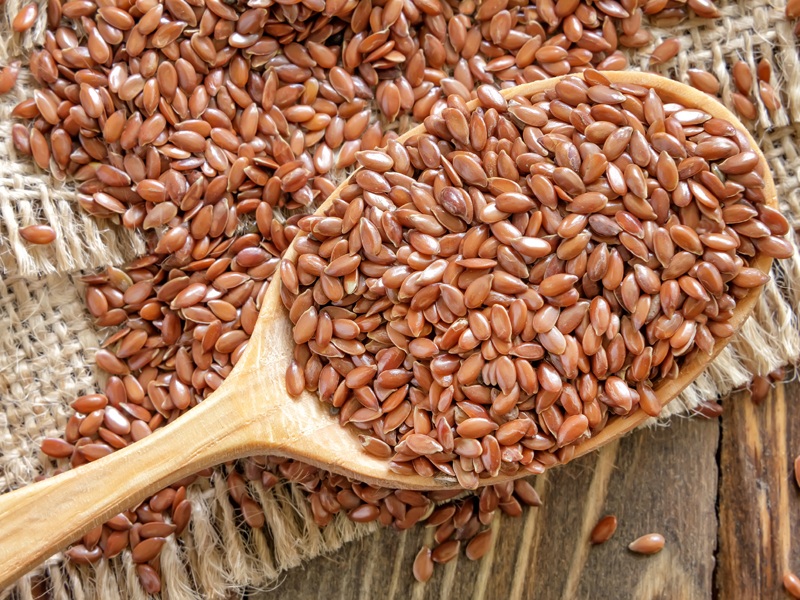Every woman goes through the emotional roller-coaster of periods (menstrual cycle) every month and all the symptoms associated with it. But did you know women also gain weight during their periods? As if the menstrual cycle is not stressful enough, do we have to worry about weight gain? There is a chance of weight gain of about 2 to 5 pounds, and it is nothing but one of the symptoms of PMS(Premenstrual syndrome).
This article delves into why there is a weight gain during periods, the cause, and how long it lasts. Read on to know more!

Why Do You Weigh More During Your Period:
Have you ever wondered why you gain those extra pounds, especially during periods? We present you with some of the reasons you weigh more during your menstrual cycle.
1. Impaired Digestion:
There is a lot of hormones involved during the process of menstruation. There is an impairment of the digestion process when there is improper hormonal balance. You can find yourself facing distention, bloating, gas retention in the stomach during periods since there is a fluctuation of estrogen and progesterone hormones in some people. When there are issues in your digestive system, it tends to show an increase in your weight.
See Also: Healthy Foods to Improve Digestion
2. Water Retention:
Water retention might be one of the culprits that are making you gain weight during your periods. Progesterone and estrogen play an essential role in regulating the balance of water in your body, and the levels of these hormones fall when you are due for your period. This fluctuation in hormones results in water retention resulting in weight gain since tissue fluids accumulate (1). You can feel water retention during periods in the extremities, stomach, or breast.
3. Issues with the Gut:
Bloating, constipation, indigestion are some of the gut issues many women experience during their periods. Just a few days before your periods, there are elevated progesterone levels, which results in slower gut movement. This causes constipation since your entire digestive tract becomes sluggish.
RELATED BEST 10 ON AMAZON:
| IMAGE | TITLE | TRENDS | SEE MORE |
|---|
 | Orgain Organic Kids Protein Nutritional Shake, Chocolate - 8g of Protein, 22 Vitamins & Minerals, Fruits & Vegetables, Glu... | 52168.5 | MORE VIEW |
|---|
 | Nature's Bounty Black Cohosh Root Pills and Herbal Health Supplement, Natural Menopausal Support, 540 mg, 100 Capsules | 38403 | MORE VIEW |
|---|
 | Amberen: Safe Multi-Symptom Menopause Relief. Clinically Shown to Relieve 12 Menopause Symptoms: Hot Flashes, Night Sweat... | 90515 | MORE VIEW |
|---|
 | Premier Protein Shake, Vanilla, 30g Protein, 1g Sugar, 24 Vitamins & Minerals, Nutrients to Support Immune Health 11.5 Fl ... | 874552 | MORE VIEW |
|---|
 | SmartyPants Teen Girl Formula, Daily Multivitamin Gummies: Vitamins C, B12, K, Zinc, & Biotin for Immune Support, Energy, ... | 53910 | MORE VIEW |
|---|
 | Naturade All-Natural Weight Gain Instant Nutrition Drink Mix, Vanilla, 40.6 Ounce | 10422.2 | MORE VIEW |
|---|
 | Hormone Balance for Women - First All in One Relief for Fatigue, Bloating, Hot Flashes, Mood Swings, and More - Natural Ho... | 2525.6 | MORE VIEW |
|---|
 | Muscle Builder | MuscleTech Muscle Builder | Muscle Building Supplements for Men & Women | Nitric Oxide Booster | Muscle G... | 16985 | MORE VIEW |
|---|
 | Premier Protein Shake, Vanilla, 30g Protein, 1g Sugar, 24 Vitamins & Minerals, Nutrients to Support Immune Health 11.5 Fl ... | 874552 | MORE VIEW |
|---|
 | Optimum Nutrition Micronized Creatine Monohydrate Capsules, Keto Friendly, 2500mg, 300 Capsules (Packaging May Vary) | 315229 | MORE VIEW |
|---|
 | Liquid I.V. Hydration Multiplier - Passion Fruit - Hydration Powder Packets | Electrolyte Drink Mix | Easy Open Single-Ser... | 303159 | MORE VIEW |
|---|
 | Optimum Nutrition Serious Mass Weight Gainer Protein Powder, Vitamin C, Zinc and Vitamin D for Immune Support, Chocolate, ... | 281970 | MORE VIEW |
|---|
 | NutriRise Organic Ashwagandha Root with Black Pepper Capsules - 120ct - 1300mg, Natural Stress & Mood Relief, Sleep Aid, A... | 245502 | MORE VIEW |
|---|
 | CoQ10 100mg Softgels - Qunol Ultra 3x Better Absorption Coenzyme Q10 Supplements - Antioxidant Supplement For Vascular And... | 233252 | MORE VIEW |
|---|
 | XTEND Original BCAA Powder Watermelon Explosion - Sugar Free Post Workout Muscle Recovery Drink with Amino Acids - 7g BCAA... | 213808 | MORE VIEW |
|---|
 | Goli Ashwagandha & Vitamin D Gummy - 60 Count - Mixed Berry, KSM-66, Vegan, Plant Based, Non-GMO, Gluten-Free & Gelatin Fr... | 167526 | MORE VIEW |
|---|
 | One A Day Women’s Petites Multivitamin,Supplement with Vitamin A, Vitamin C, Vitamin D, Vitamin E and Zinc for Immune Heal... | 135290 | MORE VIEW |
|---|
 | Organic Maca Root Black, Red, Yellow 1900 MG per Serving - 150 Vegan Capsules Peruvian Maca Root Gelatinized 100% Pure No... | 114268 | MORE VIEW |
|---|
Tips: "Amazon, Amazon Prime, the Amazon logo and Amazon Prime logo are trademarks of Amazon.com, Inc. or its affiliates". AS AN AMAZON ASSOCIATE, WE EARN AFFILIATE COMMISSIONS FROM QUALIFYING PURCHASES.
























